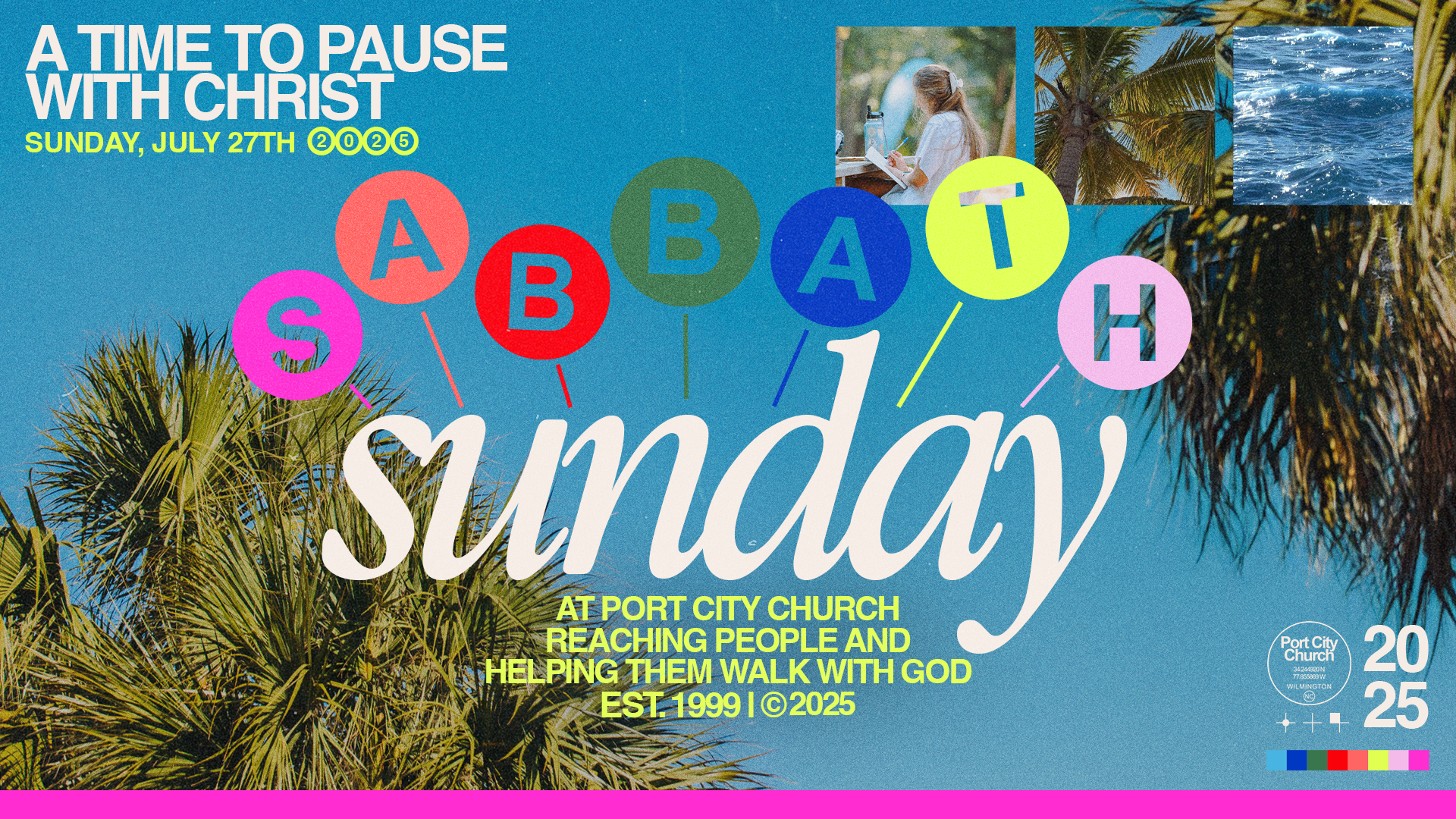He Rested
READ
There's something profoundly beautiful about rhythm. Your heart beats in rhythm. The seasons change in rhythm. The tides ebb and flow in rhythm. And right here at the beginning of Scripture, we discover that God built rhythm into the very foundation of existence—a rhythm of work and rest, of creating and celebrating, of doing and being.
Let’s take a moment to read Genesis 2:2-3:
By the seventh day God had finished the work he had been doing; so on the seventh day he rested from all his work. Then God blessed the seventh day and made it holy, because on it he restedfrom all the work of creating that he had done.
REFLECT
This isn't just a nice idea or a helpful suggestion. This is the Creator of the universe establishing a pattern that He Himself follows. Before sin entered the world, before stress and anxiety and the pressure to prove ourselves, God was already demonstrating that life is meant to have rhythm. Not the frantic pace of modern life, but the steady, sustainable rhythm of grace.
Notice something beautiful here: God didn't rest because He was tired. The psalmist reminds us that God "will not grow tired or weary" (Isaiah 40:28). God rested because He was establishing a template for human flourishing. He was showing us what healthy life looks like—periods of creative work followed by intentional rest, seasons of output balanced with seasons of restoration.
Think about your own rhythm right now. Does it feel sustainable? Or does it feel like you're constantly running uphill, never quite catching your breath? Our culture has convinced us that busyness equals importance, that exhaustion is a badge of honor, that rest is something we'll get to "someday" when everything else is finished. But God's rhythm tells a different story.
In this rhythm of grace, rest isn't the reward for completed work—it's the foundation for meaningful work. God didn't rest because creation was finally done; He rested and called it good, and then from that place of rest, He continued His work of relationship and care. The rhythm itself is the point, not the achievement of some final destination.
Consider how this might change your perspective on rest. Instead of viewing it as something you earn through productivity, what if you saw it as the soil from which healthy productivity grows? Instead of rest being the dessert after the meal of work, what if rest is the table itself—the foundation upon which all healthy work is built?
The Hebrew word "holy" that's used to describe the seventh day means "set apart" or "sacred." God didn't make the day holy because of what happened on it; He made it holy by His presence and attention. When we enter into intentional rest, we're not just taking a break—we're entering into sacred space, into the rhythm that God Himself established.
This rhythm of grace offers us something our achievement-oriented culture cannot: the freedom to be human. We don't have to be constantly productive to be valuable. We don't have to justify our existence through our output. We can rest because we are held by the same God who rested, not from exhaustion, but from the joy of creating something beautiful.
What would it look like to trust this rhythm in your own life? Maybe it means protecting one day a week for rest, regardless of what remains undone. Maybe it means building smaller rhythms of rest into your daily life—pauses for prayer, moments of gratitude, intentional breathing. Maybe it means giving yourself permission to rest without guilt, knowing that you're following a pattern established by God Himself.
The rhythm of grace isn't about perfection; it's about permission. Permission to be human, to need rest, to find value in being rather than just doing. It's about trusting that the God who established this rhythm will sustain you within it, that His grace is sufficient for both your work and your rest.
In a world that tells you to go faster, work harder, achieve more, the rhythm of grace whispers a different invitation: Come. Rest. Trust. The same God who spoke the universe into existence and then rested is the same God who holds you now, who invites you into His rhythm, who finds joy in your being, not just your doing.
RESPOND
Take a moment to process what God might be leading you to do in light of what you read.
What does the current rhythm of your life look like, and how does it compare to the rhythm God established in creation?
What fears or beliefs make it difficult for you to embrace regular rest as a holy and necessary part of life?
How might your relationship with work change if you viewed rest as the foundation for meaningful work rather than the reward for completed work?
REST
Take a moment to rest in God’s presence and consider one thing you can take away from your time reading, then close your devotional experience by praying:
Creator God, You established rhythm from the very beginning, showing us that life is meant to have seasons of work and rest. Help me to trust Your rhythm over the world's demands. Give me the courage to rest without guilt and the wisdom to see rest as sacred, not selfish. Teach me to find my worth in being Your beloved child, not in my productivity. Amen.

